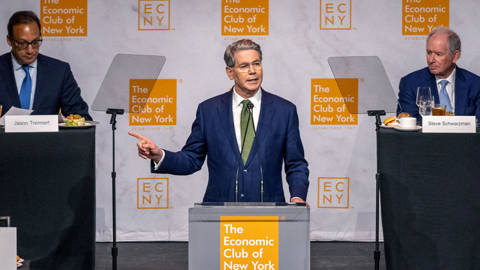https://prosyn.org/JCjQZGm
New Comment
Email this piece to a friend
Contact us
Please select an option
Please wait, fetching the form
Please wait, fetching the form
Please wait, fetching the form
Please wait, fetching the form
Please wait, fetching the form
Please wait, fetching the form
Please wait, fetching the form
We hope you're enjoying our PS content
To have unlimited access to our content including in-depth commentaries, book reviews, exclusive interviews, PS OnPoint and PS The Big Picture, please subscribe









Just out, a new article (pdf) by the brilliant Nassim Nicholas Taleb.
So instead of relying on thousands of meandering pages of regulation, we should enforce a basic principle of “skin in the game” when it comes to financial oversight:
“The captain goes down with the ship; every captain and every ship.”
In other words, nobody should be in a position to have the upside without sharing the downside, particularly when others may be harmed. While this principle seems simple, we have moved away from it in the finance world, particularly when it comes to financial organizations that have been deemed “too big to fail.”…
In sum, we believe the crisis of 2007–2008 happened because of an explosive combination of agency problems, moral hazard, and “scientism”— the illusion that ostensibly scientific techniques would manage risks and predict rare events in spite of the stark empirical and theoretical realities that suggested otherwise...
Joseph Schumpeter could not agree more.
Introductory Offer: Save 30% on PS Digital
Access every new PS commentary, our entire On Point suite of subscriber-exclusive content – including Longer Reads, Insider Interviews, Big Picture/Big Question, and Say More – and the full PS archive.
Subscribe Now
Hat tip to The Browser.
File under 'ship shape economics'.